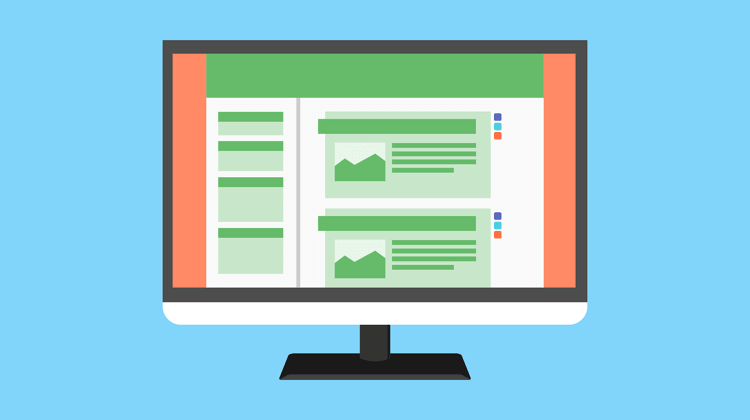How To Find A Job With A Disability Even In A Bad Economy

It probably comes as no surprise that disabled people looking for work have a particularly hard time finding a job in this poor economy. But as much as we’d like things to be different, the fact is employers still have misconceptions about disabilities and that’s why you have to plan strategically to set yourself up for the best chance at success.
In this blog post, you’ll learn how to find a job with a disability even when the odds are stacked against you. I touch on all facets of the process, from searching and applying for a job to preparing for the interview and following up afterward.
So, let’s start at the beginning…where to look for a job!
SEARCHING FOR A JOB
If you’ve been disabled for a while, you likely have large gaps in your resume, so the first thing you want to do is see if you can fill it in some way prior to applying for jobs. What about doing volunteer work? Getting an unpaid internship? Or, continuing with your education? Any of these can be used to account for your time.
Next, you’ll want to properly assess your physical and/or mental limitations to get a better idea of the type of work you’re capable of doing. For example, if you’re unable to lift heavy boxes, you obviously shouldn’t apply for a warehouse job. Ideally, you should be able to perform the essential duties of a job without needing major accommodations from the employer.
Job Search Websites
As far as where to look for jobs, there are now plenty of reputable websites that connect disabled individuals to employers, such as these:
- Ability Jobs
- My Employment Options
- USA Jobs(government-related jobs)
Of course, you can also try your hand at popular job search websites like Monster and Indeed. But before applying, try to see if the company has previously hired disabled people or would at least be open to the idea. There are a couple of ways to do this…
Company Website
Visit the company website and read their About and Policy pages to see whether there’s any mentioning of disabled employees. Also, try to get a sense on whether the company is open to telecommuting and/or flexible work schedules which I’m assuming you’d prefer.
Press Releases
Check out the company’s Press Releases to find out if they’ve sponsored disability-related events, obviously indicating that they hold favorable views toward people with disabilities.
Other Job Search Methods
Besides websites, you can also try looking for jobs through disability advocacy groups, support groups, and personal contacts. Here’s what to do…
Write down everyone you know related to the field you’d like to work in and personally reach out to any of those whom you think could help, via phone or email. Your tone should be cordial, yet direct, noting that you’re looking for work and that you’d appreciate the name of a someone whom you could contact.
APPLYING TO A JOB
Unless you’re using a job search website catered to disabled people, don’t highlight your disability in your resume or cover letter. This extends to things like awards you’ve won related to your disability or any organization/activist groups you belong to.
The problem is many employers have inaccurate, preconceived notions about disabilities and so you don’t want to give them a reason to dump you onto the reject pile before you even had an interview. In any case, you’re not obligated to say anything since the Americans with Disabilities Act protects disabled individuals from having to disclose their disabilities.
Now, here are a few tips when writing your cover letter and resume…
Cover Letter
- Limit your cover letter to one page
- Don’t include the same information as your resume
- Address your cover letter to a specific person, complete with title, date, and company address
- Highlight specific projects and accomplishments
- Avoid spelling errors
Resume
- Limit your resume to one or two pages maximum
- Customize your resume for each job you’re applying to by adding and subtracting experiences relevant to the position
- Create a profile on LinkedIn (if you don’t have one already) and link to it from your resume — it’s a great opportunity to provide more background information about yourself
- Keep your resume updated
- Avoid spelling errors
- For more resume tips, CLICK HERE
PREPARING FOR THE JOB INTERVIEW
As mentioned, many employers aren’t correctly informed about people with disabilities. Unfortunately, this means you’ll have to work extra hard to make a good impression during your job interview. So here’s what you can do to prepare…
Research the Company
Take the time to learn a bit about the history of the company and understand what they do, how they operate and who they work with.
Assemble Your Materials
Print out your resume on good stock paper as it looks more professional. If the job you’re interviewing for requires a portfolio of your work, make sure it’s presentable and in the order you’d like to show it.
Do a Dry Run
Make sure to rehearse answering some practice interview questions[source] and be prepared to address any gaps in your resume (if you’ve haven’t filled them).
Scope Out Transportation
Find out in advance the best way to get to the employer’s office for your interview. Even better, do the trip a day or two beforehand during rush hour to see how long it takes (especially important if you rely on public transportation!)
Dress Well
Even if it’s physically challenging, do your best to dress up for your interview. Same goes for a phone interview. Why? Because dressing up will put you in the right frame of mind (just make sure to find a quiet place in your home or apartment during the interview).
Decide Whether to Disclose Your Disability
Understand that it’s entirely up to you whether to disclose your disability or not. Now, if you have an obvious disability such as blindness or paralysis, it’s probably best to address the elephant in the room straight away. Otherwise, it may be better to bring up your disability sometime later in the interview after you’ve already sold yourself.
Here are a few more tips when discussing your disability…
Make the Interviewer Feel Comfortable
Should you decide to disclose your disability, you’ll want to make your interviewer feel at ease by coming across positive and upbeat. And don’t get upset by ignorant questions related to your disability. Instead, take the time to educate your interviewer in a light manner and ask them how he/she would feel having someone like you working there.
You also want to reassure the employer that you can do the job and that nothing will stop you from succeeding.
Highlight Skills Gained as a Result of Your Disability
You can even point out positive consequences of your disability that would apply to the job. For instance, how overcoming specific challenges led you to become a great problem solver. Or, how using assistive technology made you more tech-savvy.
Don’t Make Demands…Yet
Only bring up the topic of special accommodations if it’s raised by the employer first (e.g., ramp for outside entrance, speech recognition software, etc.) You don’t want to start making demands before even landing the job! Otherwise, leave the topic for a better time at which point mention how exactly the accommodations would benefit you and your work.
Also, be sure to bring proof of your disability (if it isn’t already obvious) and a note signed by your doctor requesting the accommodations you need.
Keep in mind, not every employer will be able to accommodate you, especially small businesses with limited resources. But they might be able to come up with a work-around solution so don’t avoid these jobs!
Answer Questions Directly and Confidently
When you go in for your interview, be confident without being cocky. If YOU don’t believe you can do the job, they certainly won’t either!
Here are a few more tips on how to answer questions the right way…
- Don’t be a politician, always answer questions directly.
- Don’t talk badly about past employers. Not only is it in poor taste, but your interviewer might suspect you’d do the same to them one day.
- Make sure you also ask THEM questions — don’t forget, you’re interviewing them as much as there are interviewing you.
FOLLOWING-UP
You’ll want to follow-up with a phone call a week after your interview and try to talk to the person who interviewed you. This will give the impression that you’re serious and committed to getting the job. If he/she doesn’t have an answer for you yet, try calling again a few days later. But don’t hound them too much as that might put them off.
Now, hopefully, you’ll get hired and start your new job right away. But what if you don’t?
Well, in this case, you have a few options…
Get Feedback
Ask for feedback from the employer to find out why you didn’t get the job and if there are any improvements you can make.
If you have a legitimate reason to suspect that discrimination played a role, you can file a complaint with the Equal Employment Opportunity Commission (EEOC) — the federal organization which handles these types of cases. You’re also protected by the Americans with Disabilities Act which prohibits employers from discriminating against job applicants.
Go on Informational Interviews
If you keep getting rejected, try setting up informational interviews instead. The sole purpose of this kind of interview is to learn more about the company and its industry. With a few of these under your belt, you’ll have a better idea of what these businesses look for in a candidate and how best to present yourself for future job interviews. Plus, you’ll make more business contacts!
Work for Yourself
If you follow the advice outlined in this article and practice some patience, a job will eventually come through for you. But I get it, you want it now, right?
Well, since you’re in waiting-mode anyway, why not consider self-employment as an option? Who knows, you might even like it! 😀
NOW IT’S YOUR TURN!
So how has the job hunt gone for you thus far? Leave your comments below!








